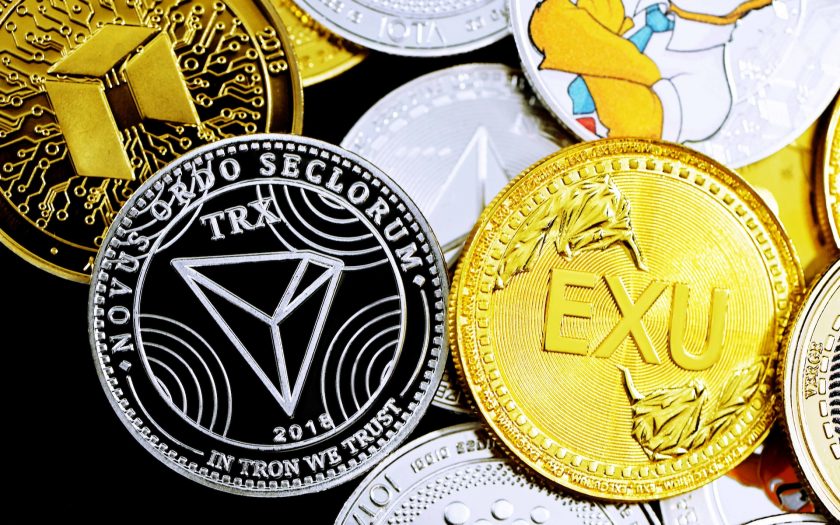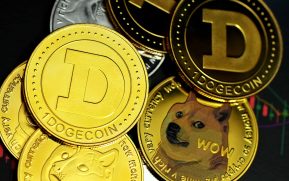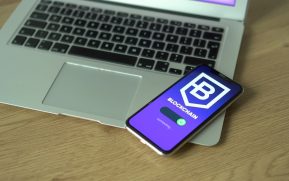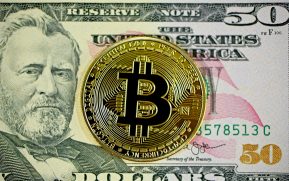
Click here to sign in with or
Forget Password?
Learn more
share this!
1
4
Share
Email
December 5, 2022
by Nir Kshetri, The Conversation
Until about 2020, universities used cryptocurrencies only to pay ransoms to criminals attacking their networks. A fast payment to criminals helped victim universities restore their networks quickly.
With increasing public adoption of cryptocurrencies, especially among young consumers, universities are exploring them, too. As of early 2022, 20% of U.S. consumers had used cryptocurrencies. According to an April 2022 report, 28% of 13- to 39-year-olds had purchased at least one type of cryptocurrency. Among consumers in this age group, 13% had purchased and 38% were interested in a particular offshoot of cryptocurrencies called non-fungible tokens.
Cryptocurrencies have lost market value from a peak of about US$3 trillion in November 2021 to $804 billion in November 2022. And their uses are not as widespread as they were as recently as 2021. Despite the crashes in value and loss in confidence due to the collapse of some large crypto exchanges, universities appear to me to be open to a potential market recovery.
In my recent research, I have looked at educational institutions’ use of crypto assets such as cryptocurrencies and non-fungible tokens. I see three ways that universities are using cryptocurrencies.
1. Accepting tuition payments
People want to be paid in cryptocurrencies and use it to buy goods and services. Businesses are responding to this trend, setting up systems to accept payments in cryptocurrencies.
Universities are responding, too. Since May 2022, Bentley University outside Boston has allowed students to pay tuition with cryptocurrencies such as bitcoin, ethereum and USDC. Some universities accept cryptocurrency payments only for certain programs. For instance, in the fall of 2021, the Wharton School of the University of Pennsylvania announced it would accept cryptocurrencies to pay tuition in its executive education program in the economics of blockchain and digital assets.
Paying tuition in cryptocurrency is faster, cheaper and easier for international students, because doing so lets them avoid paying fees for currency conversion and international transfer transactions. And universities benefit by receiving cryptocurrency payments immediately, rather than facing a delay of several days for overseas bank transactions.
Universities around the world deal differently with crypto’s price volatility. The University of Nicosia in Cyprus immediately converts bitcoin to euros. But Paraguay’s Universidad Americana evaluates price trends before converting into its national currency.
2. Receiving crypto gifts
It is becoming increasingly common for universities to accept cryptocurrency gifts. In 2021, the public charity organization Fidelity Charitable received the equivalent of US$331 million in digital gifts, which was about 12 times more than in 2020.
As of 2021, technology company The Giving Block agreed to help about 100 universities, such as the University of Arizona, the University of Maryland, the University of Alabama, Catholic University and Wake Forest University, handle cryptocurrency payments and donations. Some universities have added cryptocurrency guidelines on their “How to Give” pages and provided instructions for donors.
In early November 2022, Vitalik Buterin, a co-founder of the ethereum blockchain, gave the University of Maryland $9.4 million in cryptocurrency. The money will be used to fund public health research.
3. Exploring non-fungible tokens
Some universities are successfully capitalizing on this trend to raise money, and to strengthen connections with alumni.
When blockchain technology, a database of transaction records stored in many computers at once, was first invented, it supported only money-like assets such as bitcoin and other cryptocurrencies. The technology has evolved to create a special kind of digital asset called non-fungible tokens. A non-fungible token is a unique image, video or audio file representing an item such as a physical painting or a song stored on blockchains. The file, and information about who owns it, are stored on a blockchain.
Of course, a non-fungible token is not the asset itself, but is a one-of-a-kind, exclusive digital version of it, which some people value and view as a social status symbol. One non-fungible token artwork, “The Merge,” which was created by a pseudonymous artist, was sold for $91.8 million in December 2021.
In June 2022, the University of California, Berkeley minted a non-fungible token based on the Nobel Prize–winning research of immunologist James Allison. The token’s auction raised about $50,000. The proceeds funded immunology research.
Colleges such as Brigham Young University and Syracuse University are bundling non-fungible tokens with real-world perks such as VIP seats for events they organized. Some people are willing to pay more for the combination than for the real-world items alone.This increases non-fungible tokens’ attractiveness.
In May 2022, Harvard University announced that every graduate from Harvard College would receive a commemorative non-fungible token. And Duke University grants completion certificates in the form of non-fungible tokens for those who pass one of its blockchain technology courses.
Georgetown University’s McDonough School of Business gave the members of its class of 2020 non-fungible tokens as a gift. The tokens were digital twins of the physical 2020 Challenge Coin gifts given to the students as a token of appreciation. The coin’s back features the building that houses the university’s business school.
Universities are using cryptocurrencies to manage operations, raise funds and enhance relationships with students and alumni. If these assets recover from their current crash and begin to boom again, these trends may further accelerate.
Provided by The Conversation
Provided by The Conversation
This article is republished from The Conversation under a Creative Commons license. Read the original article.![]()
Explore further
Facebook
Twitter
Email
Feedback to editors
3 hours ago
1
5 hours ago
0
6 hours ago
0
Dec 05, 2022
0
Dec 05, 2022
0
17 minutes ago
30 minutes ago
47 minutes ago
1 hour ago
1 hour ago
1 hour ago
2 hours ago
2 hours ago
2 hours ago
3 hours ago
Nov 28, 2022
Apr 05, 2022
Mar 31, 2021
Nov 24, 2022
Nov 14, 2022
Mar 26, 2021
2 hours ago
Dec 04, 2022
Dec 02, 2022
Nov 29, 2022
Nov 26, 2022
Nov 25, 2022
Use this form if you have come across a typo, inaccuracy or would like to send an edit request for the content on this page. For general inquiries, please use our contact form. For general feedback, use the public comments section below (please adhere to guidelines).
Please select the most appropriate category to facilitate processing of your request
Thank you for taking time to provide your feedback to the editors.
Your feedback is important to us. However, we do not guarantee individual replies due to the high volume of messages.
Your email address is used only to let the recipient know who sent the email. Neither your address nor the recipient’s address will be used for any other purpose. The information you enter will appear in your e-mail message and is not retained by Phys.org in any form.
Get weekly and/or daily updates delivered to your inbox. You can unsubscribe at any time and we’ll never share your details to third parties.
More information Privacy policy
Medical research advances and health news
The latest engineering, electronics and technology advances
The most comprehensive sci-tech news coverage on the web
This site uses cookies to assist with navigation, analyse your use of our services, collect data for ads personalisation and provide content from third parties. By using our site, you acknowledge that you have read and understand our Privacy Policy and Terms of Use.
 How To Make Huge Profits In A Short Time With Crypto
How To Make Huge Profits In A Short Time With CryptoGet detailed training system that shows an absolute beginner (without any skill) how to make huge profits in a short time with crypto.
 Crypto + NFT Quick Start Course
Crypto + NFT Quick Start CourseThe #1 course for profit in the Crypto & NFT world - You will discover the secrets that 99% of people don’t know yet





